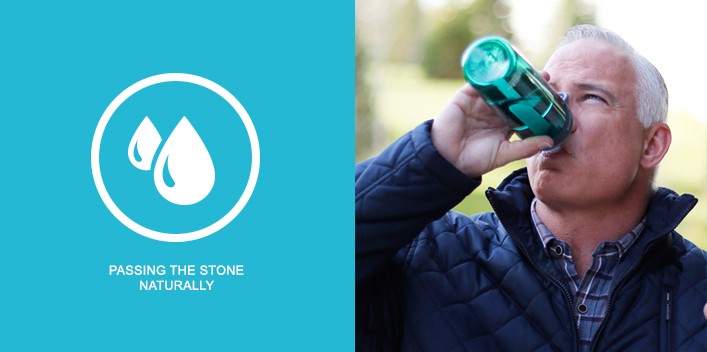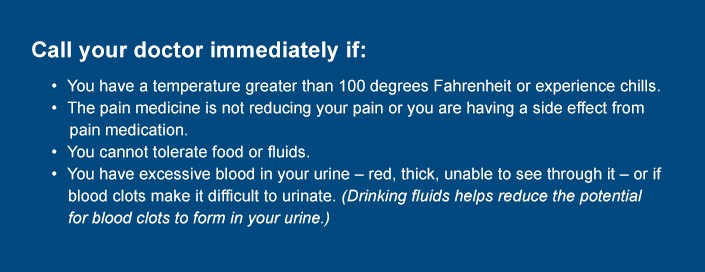Passing the Stone Naturally

The Remedy
Waiting for your kidney stone to pass on its own is generally considered to be safe as long as your pain is bearable, you do not show signs of infection and the stone is reasonably small enough to pass spontaneously.
Passing a small stone can cause variable pain (can range from mild to severe) and discomfort, so your doctor may recommend pain relievers such as ibuprofen, acetaminophen, naproxen sodium or narcotic analgesics. You may also need anti-nausea medicine.
At Your Doctor Appointment
Let your doctor know:
- All of your prescription medicines, vitamins and supplements, herbs and natural remedies, and over-the-counter drugs.
- Any known allergies you have to medicines and the contrast agent used in some X-rays.
- If you may be pregnant.
As You Wait for Your Stone to Pass
Be aware of these common concerns:
- Nausea and occasional vomiting.
- Pain in your kidneys, abdomen, lower back and sides. Pain may increase when you urinate. Take medicine as prescribed.
- Blood in your urine. The color can range from light pink to reddish and sometimes can even have a brownish hue – but you should be able to see through it. (Medications to help with burning sensation during urination can sometimes turn urine orange or blue.) If bleeding increases significantly, call your doctor immediately or go to an emergency room for evaluation.
